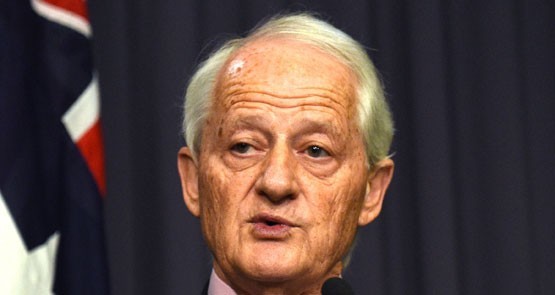
Marc Sageman is one of the world’s foremost experts on terror networks and what we call “radicalisation”, the ill-defined process by which some people, usually young men, turn to violence to achieve political or religious goals. He’s a forensic psychiatrist and sociologist and was a CIA officer in Afghanistan, Pakistan and India in the 1980s, managing the US’ program working with Afghan Mujahideen. In a world filled with a plague of clueless “terror expert” talking heads, Sageman has the field experience to speak with authority.
The refusal of Western politicians to accept any link between terrorism and Western foreign policy has frustrated Sageman. Responding to the horrific murder of soldier Lee Rigby at Woolwich in London in 2013 in an interview with Huffington Post, he said of one of the perpetrators:
“If you listen to the video of that guy, Michael Adebolajo, he very much says it is because of the [Afghan] war. At what point are you going to start listening to the perpetrators who tell you why they’re doing this? The same applies to the videos of the 7/7 bombers. At some point you have to be grounded in reality.”
Sageman’s view is hardly controversial within the intelligence community. It’s widely accepted, including by MI5 and by the CIA, that Western foreign policy has directly helped perpetuate terrorism. Reality, however, is not to the taste of Philip Ruddock, a piece of parliamentary deadwood whose primary contributions to public life in Australia over decades in politics have been a savage attack on basic civil liberties and dehumanising asylum seekers. Ruddock has attacked a senior Australian Islamic, Ibrahim Abu Mohammed, for daring to suggest there is any connection between terrorism and Western foreign policy. “I can’t let this pass,” Ruddock piously declared.
That’s despite a report from a victim of the attacks in Paris that one of the attackers specifically mentioned France’s actions in Syria during the course of the attack. As Sageman said: “At what point are you going to start listening to the perpetrators?”
That’s the problem that Ruddock faces — he and other Western politicians like to pretend that Islamist terrorism has no context, that it is a simple expression of self-induced evil within the perpetrator, motivated by a vague, unfocused rage against the way the world has changed since the 10th century. But the facts keep contradicting them, so they engage in a sleight of hand in which they argue that any attempt to understand the motivation of terrorists is in fact an attempt to justify terrorism.
“I don’t think any conduct that governments like ours have been engaged in can justify terrorism,” said Ruddock, deliberately ignoring that no one is trying to justify anything. Ruddock is so intellectually lazy he can’t even produce a new argument on this — he’s simply repeating the same neoconservative lie that contextualisation equals endorsement that been peddled for over a decade.
Not content with accusing Islamic community leaders of endorsing terrorism, Ruddock then goes on to blame Paris on anyone who has objected to the relentless extension of national security powers that Ruddock has been a devotee of (while masquerading as a champion of human rights) for decades. “Intelligence gathering has been made a lot harder than it needs to be by civil society groups opposing issues such as access to metadata.”
Again the facts squarely contradict Ruddock. France has far more extensive surveillance powers than Australia and only recently expanded them further. French security agencies can not just obtain metadata but tap phones and computers, install spy cameras and plant computer malware without a warrant, as well as force ISPs to monitor their customers. And metadata is now retained in France for five years, not two.
But yet again we’ve seen that mass surveillance does nothing to help thwart attacks — exactly as Barack Obama’s handpicked review panel found, that the NSA’s mass surveillance powers, in place over many years, hadn’t thwarted a single terror attack. Indeed, in a pattern that we’ve seen tragically repeated in Europe and the United States, no population-wide surveillance program was needed to alert authorities about at least one of the perpetrators in Paris — he was already known to French security agencies. Just as Man Haron Monis was known to agencies, and the Attorney-General’s Department, here, and was dismissed as a possible threat before his attack, which cost two lives.
Indeed there’s a serious question to be asked about whether mass surveillance isn’t overwhelming agencies with information and the need to chase down the statistically inevitable false positives that vast amount of data brings.
If Ruddock were genuinely interested in stopping terrorism, he’d pay attention to such facts. But it seems he’s not. He appears only interested in hitting out at anyone who might contradict his narrative of a perpetual war on terror fueling perpetual extensions of national security powers.








“France has far more extensive surveillance powers than Australia and only recently expanded them further. ”
It is unreasonable to require surveillance authorities to identify false flag operation in advance
Good bit thanks. Probably need these blokes to retire after 70 – they’ve done enough damage.
“It is unreasonable to require surveillance authorities to identify false flag operation in advance”
Finally, a light bulb. It would be incongruous and seemingly self-contradictory effect to expect this when most nations rely on foreign intelligence for security guidance. More plainly it’s like putting the fox in charge of the henhouse.
all true!
Is it Lucky Phil’s fault that he can’t see they’re human – with all those frailties?
Remember how Howard lauded him – like some in the party are lauding Homer Dutton now?
[Loved his “Real Phil” cameo at that “On the Road with Phil and Connie Town Hall Meeting” (“to listen to the concerns of Muslims”?) – where he tore into that young Muslim woman for expressing views, re disenfranchisement of young Muslims, that he didn’t agree with? “What would she know”?]